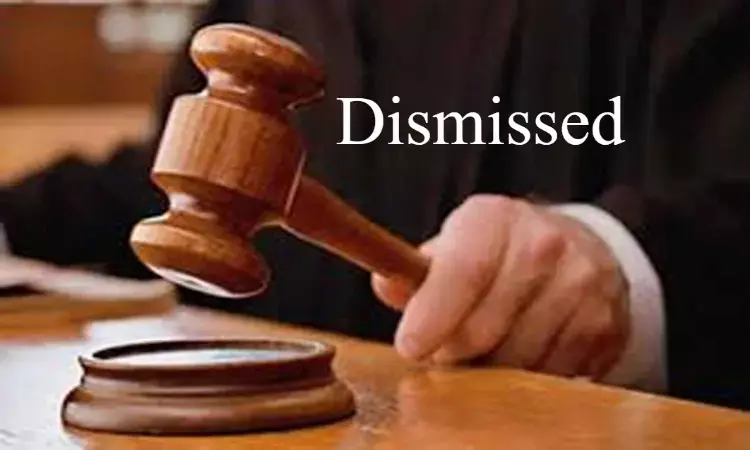- Home
- Medical news & Guidelines
- Anesthesiology
- Cardiology and CTVS
- Critical Care
- Dentistry
- Dermatology
- Diabetes and Endocrinology
- ENT
- Gastroenterology
- Medicine
- Nephrology
- Neurology
- Obstretics-Gynaecology
- Oncology
- Ophthalmology
- Orthopaedics
- Pediatrics-Neonatology
- Psychiatry
- Pulmonology
- Radiology
- Surgery
- Urology
- Laboratory Medicine
- Diet
- Nursing
- Paramedical
- Physiotherapy
- Health news
- Fact Check
- Bone Health Fact Check
- Brain Health Fact Check
- Cancer Related Fact Check
- Child Care Fact Check
- Dental and oral health fact check
- Diabetes and metabolic health fact check
- Diet and Nutrition Fact Check
- Eye and ENT Care Fact Check
- Fitness fact check
- Gut health fact check
- Heart health fact check
- Kidney health fact check
- Medical education fact check
- Men's health fact check
- Respiratory fact check
- Skin and hair care fact check
- Vaccine and Immunization fact check
- Women's health fact check
- AYUSH
- State News
- Andaman and Nicobar Islands
- Andhra Pradesh
- Arunachal Pradesh
- Assam
- Bihar
- Chandigarh
- Chattisgarh
- Dadra and Nagar Haveli
- Daman and Diu
- Delhi
- Goa
- Gujarat
- Haryana
- Himachal Pradesh
- Jammu & Kashmir
- Jharkhand
- Karnataka
- Kerala
- Ladakh
- Lakshadweep
- Madhya Pradesh
- Maharashtra
- Manipur
- Meghalaya
- Mizoram
- Nagaland
- Odisha
- Puducherry
- Punjab
- Rajasthan
- Sikkim
- Tamil Nadu
- Telangana
- Tripura
- Uttar Pradesh
- Uttrakhand
- West Bengal
- Medical Education
- Industry
Postrio Paresis after Urology Surgery: HC upholds doctor as negligent

Kerala: The Kerala High Court has recently ruled that the maxim of 'res ipsa loquitor' will be applied in a case of medical negligence if a patient suffers an implication that is not contemplated normally. Holding so, the HC upheld the judgment of the sub court and dismissed the plea made by a consultant urologist and the hospital.
'Res ipsa loquitor' means "the thing speaks for itself". Roughly translated it implies- " the principle that the mere occurrence of some types of accident is sufficient to imply negligence,"
It is a maxim that can be relied upon by a party to a litigation, who has no knowledge or insufficient knowledge about how the incident occurred, to rely upon the incident and the attendant circumstances.
The High Court made the observation in a case where a doctor and a hospital approached the court opposing a lower court's decision of applying the principle of 'res ipsa loquitor' in a case of medical negligence where a patient suffered postrio paresis and became crippled for life.
The doctor and the hospital approached the high court after the sub court of Thiruvananthapuram received the plea of a 29-year-old patient who became paraplegic and lost his sound after he had surgery for the removal of kidney stones. The court applied the maxim of 'res ipsa loquitor' on the case and awarded a compensation of Rs.20,40,000 to the petitioner.
In the case of medical negligence, the principle of res ipsa loquitor is applicable, if the patient suffers a complication not contemplated normally. In such a case, the plaintiff is not required to prove anything more than the complication as having occurred. The res proves itself. The onus shifts to the defendant who has to discharge it by adducing evidence.
it can be safely concluded that the plaintiff had sustained serious injuries during the operation performed by the 2nd defendant at the 1st defendant hospital. the maxim res ipsa loquitor applies in the instant case. Defendants failed to prove the cause of the injury sustained by the plaintiff. Even though he deposed that the cardiologist of the Hospital and two other Doctors had seen the plaintiff when the injury occurred, none of them were examined as witnesses or even cited as witnesses. Even the anesthetist who was inside the operation theater throughout was not examined. These are all direct witnesses who were not examined.....Even the vague and indirect reference to a possible lack of oxygen supply to the brain and its cause has not been explained by the defendants. They have miserably failed to discharge their onus or explain the cause of the injury.
Thus by the application of the principle of res ipsa loquitor, the defendants alone could have answered or explained the allegation of negligence. As mentioned in the earlier part of this Judgment, the learned Counsel for the appellant had fairly submitted that the appellants are not challenging the quantum of damages awarded. Having stated so, in the absence of any challenge against the quantum of damages awarded, we affirm the judgment dated 27.07.2019 in O.S. No.1111 of 2011 of the Principal Subordinate Judge's Court, Thiruvananthapuram.
Sanchari Chattopadhyay has pursued her M.A in English and Culture Studies from the University of Burdwan, West Bengal. She likes observing cultural specificities and exploring new places.


